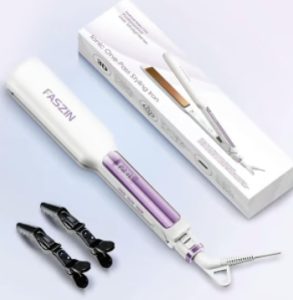
When it comes to gut health and managing constipation, supplements like Emma often promise relief, but based on my experience and others who have tried it, it might not be the miracle solution you’re hoping for.
Emma is marketed as a natural alternative to fiber and laxatives, claiming to regulate bowel movements, relieve bloating, and repair leaky gut.
While it sounds like an ideal fix for those of us struggling with constipation, there are several things to consider before deciding to buy this product.
After reading countless reviews and trying the product myself, it’s clear that the results are hit or miss.
For me, the Emma supplement didn’t live up to its promises, and many others shared a similar sentiment.
Why People Choose Emma For Constipation

Many of us dealing with digestive issues often gravitate toward products that claim to provide natural relief.
Emma is appealing because it positions itself as a gentle, natural alternative to harsh laxatives.
Its ingredients are designed to soothe the gut, improve digestion, and encourage regular bowel movements without the uncomfortable urgency or cramping associated with traditional laxatives.
I was drawn to Emma because it promised more than just a quick fix for constipation—it claimed to be a holistic gut health solution.
Who wouldn’t want something that supports overall digestion and heals the gut while also relieving constipation? It sounds ideal in theory, but in practice, things didn’t go quite as planned.
Many people are drawn to Emma for its reputation as a gentle and natural solution for constipation. It promotes itself as a product that supports gut health while providing relief from digestive discomfort.
The ingredients are typically designed to soothe the digestive system, improve digestion, and encourage regular bowel movements without the harsh side effects of traditional laxatives.
Users are often attracted to Emma for its promise of a more holistic approach, addressing overall gut health rather than offering just a temporary fix.
Pros & Cons of Emma’s Constipation
Pros:
Let’s start with the positives because, to be fair, Emma does have some things going for it.
- Natural Ingredients: The appeal of using a product with natural, plant-based ingredients is obvious. For those who want to avoid synthetic laxatives, Emma’s formula includes ingredients that are believed to support gut health without the harsh side effects.
- Mild Formula: For some users, Emma has provided mild relief from constipation without causing cramping or urgency. Unlike traditional laxatives that can make you run to the bathroom, this supplement claims to work gradually, allowing for a more controlled digestive process.
- Holistic Gut Support: Emma claims to do more than just address constipation. It is positioned as a supplement that helps repair the gut lining, reduce bloating, and support digestion overall. If you’re looking for an all-in-one supplement for your gut, Emma may seem like a good option.
- Alternative to Fiber: If you’ve tried fiber supplements in the past and didn’t have success or experienced bloating, Emma could seem like a good alternative. It’s marketed as something you can use instead of fiber, which doesn’t always work for everyone.
Cons:
Despite these pros, Emma has its fair share of cons that, for me and many others, make it hard to recommend. Here’s why I found it disappointing:
- Inconsistent Results: One of the biggest issues with Emma is the inconsistency of its results. I took Emma for over a month as directed, and I didn’t notice any improvement in my bowel movements. I was hoping for relief from my constipation, but it didn’t happen. Other reviewers reported similar experiences, where they stuck with the supplement for the full course and still didn’t see results.
- Refund Issues: If you’re hoping to get your money back if Emma doesn’t work for you, be prepared for some frustration. Many users, myself included, had trouble getting a refund even though the product advertises a 100% money-back guarantee. The company offered me a partial refund that didn’t cover what I paid for the bottles, which was frustrating. Others have reported similar problems, with the company offering less than what was originally paid.
- Shipping Delays: I ordered Emma through Walmart and experienced significant delays in shipping. To my surprise, the product shipped from China, which wasn’t disclosed at the time of purchase. Other users have noted that while Emma is made in New Jersey, Walmart sources the product from a third-party seller in China. This led to weeks of waiting, and by the time the product arrived, I wasn’t even sure it was the genuine supplement I had ordered.
- Quality Concerns: After receiving the product, I was concerned about the quality. The bottle looked slightly different from what I had seen online, and the capsules were smaller than expected. Some reviewers have mentioned similar experiences, questioning whether they received a legitimate product or a knockoff.
- No Noticeable Improvement: In my case, and for many others, there was simply no improvement in digestive health. Constipation remained a problem, and Emma didn’t deliver on its promise of better bowel movements or overall gut health.
Tips For Gut Health Without Emma

If you’re still dealing with constipation, don’t give up! There are plenty of other ways to maintain gut health and get things moving without relying on Emma. Here’s what has worked better for me and many others:
- Hydration: Drinking enough water is one of the simplest and most effective ways to relieve constipation. Your digestive system needs plenty of fluids to function properly, and dehydration can be a major cause of sluggish bowels.
- Incorporate Fiber: While Emma claims to be a fiber alternative, don’t shy away from fiber altogether. Foods like fruits, vegetables, and whole grains can naturally help keep your digestive system regular. If you’re sensitive to fiber, start with small amounts and gradually increase your intake.
- Probiotics: Taking a probiotic supplement or eating probiotic-rich foods like yogurt and kefir can help balance the good bacteria in your gut, which in turn can improve digestion and prevent constipation.
- Physical Activity: Regular exercise can stimulate your digestive system and help keep things moving. Even a short daily walk can make a big difference in how your digestive system functions.
- Avoid Processed Foods: Processed foods often lack the nutrients and fiber your body needs for good digestion. Cutting back on processed snacks and fast food can help improve your gut health.
Comparing Emma To Other Constipation Relief Products
After my experience with Emma, I decided to try other constipation relief supplements to see if I could find something that worked better. Here’s how Emma compares to some popular alternatives:
- Metamucil
Metamucil is a fiber supplement that many people use to improve regularity. While it’s different from Emma in that it’s fiber-based, I found Metamucil to be much more effective in relieving constipation. It worked faster and delivered more consistent results. However, some people experience bloating with fiber supplements, which is something to keep in mind.
- Miralax
Miralax is a laxative that works by drawing water into the colon to soften stool and make it easier to pass. In my experience, Miralax worked reliably without the cramping associated with stimulant laxatives. If you’re looking for a fast-acting solution to constipation, Miralax might be a better option than Emma.
- Digestive Enzymes
Digestive enzymes are another alternative I tried, and they worked well in helping me digest food more efficiently. While they don’t specifically target constipation, they can help improve overall digestion, which may prevent constipation in the first place. I found this approach to be gentler and more effective over time compared to Emma.
Also Read: My Thoughts On Love Wellness Bye Bye Bloat
Frequently Asked Questions (FAQ)
While Emma is marketed as a legitimate supplement for gut health and constipation relief, many users, including myself, have questioned the product’s effectiveness and quality.
Some users have also reported receiving what seemed to be counterfeit products when ordering from certain retailers.
Most users don’t report severe side effects with Emma, but like any supplement, reactions can vary. Some people have experienced no improvement at all, while others might notice mild gastrointestinal discomfort.
If you’re concerned about side effects, consult with a healthcare professional before taking Emma.
There isn’t a one-size-fits-all answer to this question, but popular options like Metamucil, Miralax, and digestive enzyme supplements tend to be more effective than Emma for relieving constipation.
Your body may respond differently to various products, so it might take some experimentation to find what works best for you.
Emma claims to restore gut health by repairing the gut lining, reducing bloating, and regulating bowel movements. However, many users, myself included, didn’t experience these benefits, making it hard to recommend for gut health support.
Final Thoughts
After trying Emma for constipation and reading countless reviews, I can’t confidently recommend it as an effective solution.
While it markets itself as a natural, holistic approach to gut health, the results just aren’t there for many people, myself included. Inconsistent outcomes, difficulty with refunds, and quality concerns make it hard to justify spending your money on this product.
There are other, more reliable options out there, like Metamucil, Miralax, or even just improving your diet and hydration habits. If you’re struggling with constipation, these alternatives are more likely to provide relief without the frustrations that come with Emma.



